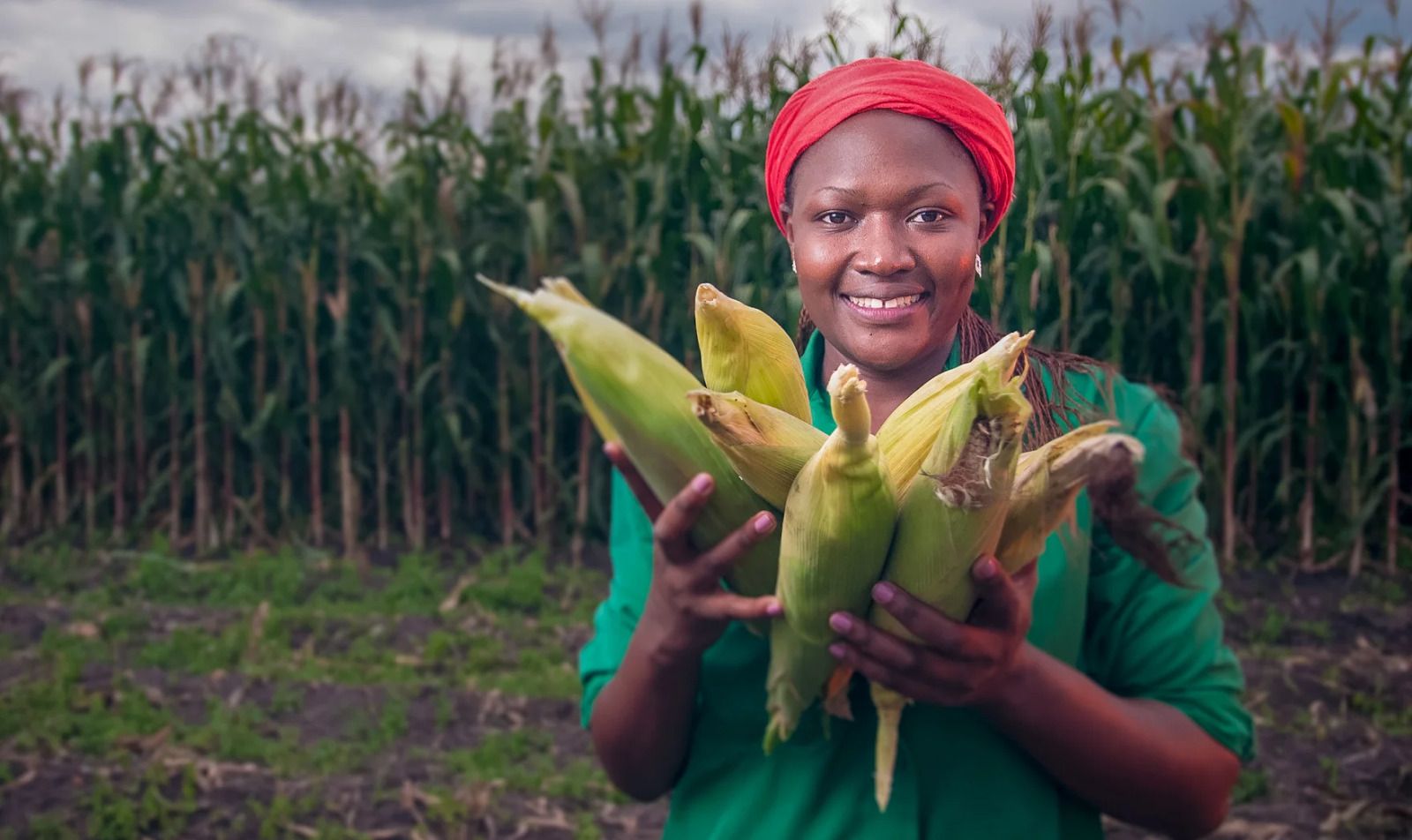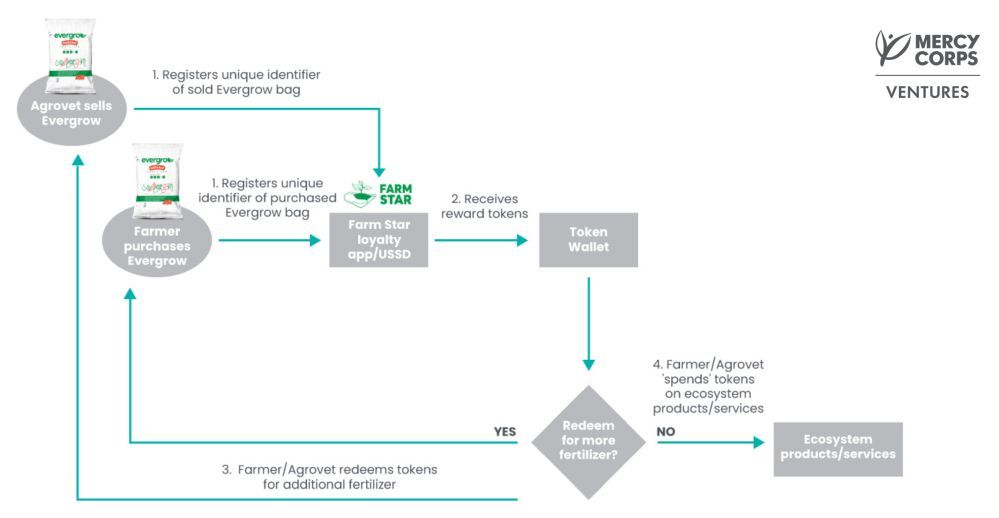Timothy Asiimwe is the innovation project manager at Mercy Corps Ventures, an active seed- and early-stage investor in emerging markets. The views expressed in this guest commentary are the author’s own and do not necessarily reflect those of AgFunderNews.

Smallholder farmers in Kenya produce up to 80% of locally produced food. But that number masks the rapidly declining yields that many of these farmers are experiencing because of diminishing soil health.
Several studies have shown that decades of conventional agriculture practices such as synthetic input use, monocropping, and deep tillage have led to a deterioration in the fertility of soils in Kenya. Though many are aware of the benefits, smallholders are hesitant to transition to regenerative practices because the payoff is not immediate and many have limited access to regenerative inputs and services.
The pilot
Mercy Corps Ventures has partnered with Farm Star to launch a new pilot to test the use of Web3-enabled rewards that are interoperable and usable with other ecosystem platforms to drive adoption of regenerative agricultural practices amongst smallholder farmers in Kenya.
Farm Star is a leading distributor of organic fertilizer in Kenya with a customer base of more than 10,000 smallholder farmers and a country-wide network spanning over 1,000 resellers. Farm Star’s flagship product, Evergrow, is a nutrient-rich, fully decomposed fertilizer made of 100% organic materials. The company is a subsidiary of Sanergy (housed within the Regen Organics division) and was recently recognized as a finalist of the Zayed Sustainability Prize.
Farm Star is launching a customer loyalty program to encourage repeat purchase behavior. Most loyalty programs only allow participants to “spend” their points in pre-defined ways, but this design choice often limits the attractiveness of reward points.
In this pilot, Web3 reward tokens, interoperable with third-party services, give farmers flexible and additional ways in which they can use reward points. Farmers who purchase Evergrow fertilizer will receive reward tokens which can be redeemed for additional fertilizer or services/products from other ecosystem partners, or even cashed out to fiat via M-PESA. For instance, a farmer could eventually use their Farm Star rewards to purchase insurance from ACRE Africa or even purchase products on Nuzo.
The loyalty platform will be available on both USSD menu as well as a downloadable smartphone app. Each Evergrow bag will be labeled with a unique identifier, which participating farmers and agrovets can input into the app/USSD menu to redeem reward points.
By making the reward points interoperable, this pilot aims to increase their value to the end users and augment the attractiveness of regenerative agricultural products.

Our hypotheses
Loyalty rewards programs drive uptake and adoption of regenerative agricultural products, leading to better environmental and business outcomes.
This hypothesis will be measured by:
- % increase in bags of Evergrow fertilizer purchased per farmer
- % increase in share of wallet for regenerative agricultural products (across all fertilizer brands in Kenya)
Regenerative agriculture leads to higher output and profitability for farmers. This will be measured by:
- % increase in yields/output for farmers
- % increase in net income for farmers
Web3 integration into loyalty programs enhances the utility of reward points, which leads to better customer satisfaction:
- Net Promoter Score (NPS) of rewards program
- Qualitative feedback on available redemption pathways
“We are excited to launch this pilot in collaboration with MCV to drive the adoption of regenerative inputs across Kenya and beyond,” said Sanergy CEO and cofounder Ani Vallabhaneni. “We are hoping diversified financial benefits of the loyalty program, enabled by the Web3 ecosystem, will give farmers the financial flexibility to make the transition to regenerative farming work on their terms.
“Through the use of Web3 interoperable rewards, we are testing a new model for incentivizing smallholders to transition to regenerative agriculture. At the same time, this pilot tests a new way for organizations to easily enable partners to subsidize their customer rewards programs. Scaling this pilot could accelerate the adoption of regenerative practices while ensuring better food security and economic wellbeing of smallholders.”
Stay tuned for updates, evidence, and insights on our other Mercy Corps Ventures pilots, responsibly testing Web3 solutions for unbanked and underbanked populations in emerging markets.




